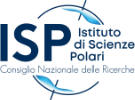Descrizione The Arctic cryosphere is changing rapidly. Accelerated melt of the Greenland ice sheet, increased runoff from Arctic glaciers, diminishing sea ice have profound impacts on coastal environments of the North. In marine process studies, the knowledge of a phenomenon depends on observations, which are usually extremely complexes because of the intrinsic difficulty of the type of measurements that have to be made. These issues are specifically urgent and strategic for coastal polar areas, that present an extremely high spatial-temporal variability. Seasonal and interannual variability of the zooplankton composition and abundance will be studied in long-time series of sediment trap samples. Zooplanktonic community data will be integrated with in situ oceanographic, biogeochemical and satellite data to describe the local physical dynamics and biogeochemical processes, and to provide evolutional trends on a large time scale. Zooplankton groups and abundance analysis will be studied to understand the temporal distribution of zooplankton biomass in coastal waters and to evaluate the zooplankton characterization, abundance and dynamics using 10-year time series sediment trap samples.
Long-term variability of zooplankton communities in an Artic fjord (Kongsfjorden, Svalbard) in relation of climate variability (2010-2020)
 Dove: CNR-ISP Sede di Bologna
Dove: CNR-ISP Sede di Bologna
Tipologia: Tesi di Laurea
Titolo: Long-term variability of zooplankton communities in an Artic fjord (Kongsfjorden, Svalbard) in relation of climate variability (2010-2020)
Tutor/Docente di riferimento: Dr. Patrizia Giordano, tel. 051 6398902, e-mail: patrizia.giordano AT cnr.it
 Ministero dell'Universita e Ricerca
Ministero dell'Universita e Ricerca
Programma Ricerche Artico
Programma Nazionale di Ricerca in Antartide
 Ministero degli Affari Esteri e della Cooperazione Internazionale
Ministero degli Affari Esteri e della Cooperazione Internazionale
L'Italia e l’Artico
L’Italia e l’Antartide
CNR-ISP
National Research Council
Institute of Polar Sciences
c/o Scientific Campus - Ca' Foscari University Venice - Via Torino, 155 - 30172 VENEZIA MESTRE (VE)
Phone: +39 041 2348547 - E-mail: protocollo.isp AT pec.cnr.it
Fax: +39 041 2348 549 - Codice Fiscale: 80054330586 - P.I.:02118311006
Unless otherwise indicated, the content of this site is licensed : Attribution Non Commercial Share Alike 4.0 International (CC BY-NC-SA 4.0)
Privacy policy e Cookie policy - Transparent administration (CNR)








